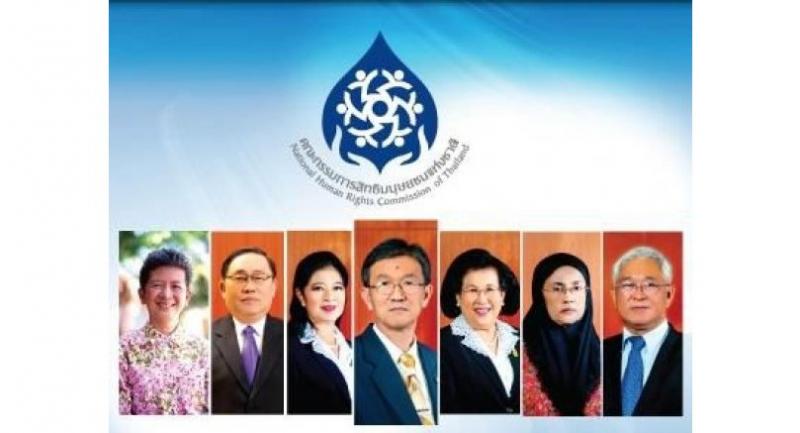New rights mediation centre aims to restore the dignity of victims

IN ORDER to avoid contributing to hush money payments, bribery and the gagging of human rights victims, the newly established mediation centre of the National Human Rights Commission (NHRC) in Bangkok has put in place multiple steps to screen eligible cases, officials have confirmed.
Details of the mediation centre’s approach were revealed at the official opening ceremony on July 6, a date coinciding with the 16th anniversary celebration of the NHRC.
Screening starts right from beginning with the mediation centre avoiding the most serious human rights violations, which will continue to move through more traditional processes of evaluation and address. Complaints about sexual violation and harassment, violence against children, and criminal offences that must be dealt with legally – in addition to other cases the NHRC regulations deem “non-negotiable” – will not be mediated.
At stage one screening, the NHRC’s initial investigation of cases filed for it to probe, they would learn whether the involved party wanted settlement. If so, the case would be passed to the centre’s sub-committee to decide whether the case is appropriate for mediation, noted NHRC commissioner Angkhana Neelapaijit.
The settlement would be facilitated and handled by the NHRC-assigned individual or a committee comprising legal experts and mediation-trained NHRC officials.
Establishment of the mediation centre follows the “Paris principles” relating to the status and processes of national institutions for the protection and promotion of human rights, says lecturer Naparat Kranrattanasuit of Mahidol University’s Institute of Human Rights and Peace Studies. The centre would also only handle the lesser legal offences such as those related to trades, libel and intrusion, Naparat said. “Such cases’ mediation isn’t just in terms of compensation payout figures, but also addresses the victim’s feelings and human dignity,” said Naparat.
“In a case where a person suffers discrimination treatment due to poverty or lack of social position, both sides must discuss why such rights violations took place. This in important and could pave the way to reconciliation. The mediation also can prevent recurrence,” she added.
Naparat gives an example from last year, when a man sought neck pain treatment from a public hospital and asked twice for a CT scan, but the doctor deemed it unnecessary. As the patient’s pain worsened to arm numbness and immobility, he sought treatment from another hospital, which diagnosed him with a serious neck-bone problem, said Naparat.
The man demanded compensation from the first facility and filed a complaint to the NHRC over the right to get good medical treatment. The case’s mediation led to both sides really discussing the problem and truly putting it to rest. The plaintiff had his chance to express his perspective, and the doctors listened and accepted the need to improve services and prevent recurrence, as well as paying some compensation, Naparat said.
Former NHRC commissioner Dr Niran Pitakwatchara warned that a mediation process must be carefully done after the following three important steps had been completed:
1. The NHRC must investigate to determine if an alleged rights violation really took place and reveal to the public who had violated whose human rights so as to prevent any doubt about whether there was collusion;
2. The punishment must be given to the violator for the sake of fairness or justice so the NHRC – having no authority to directly punish them – could report on the course of justice to those involved; and
3. The procedure must not violate the victim’s rights and entitlements for remedial measures.
Then, the final step could proceed to let both sides study the offence and for the victim to decide whether to press charges and launch lawsuits, Niran said.
“The worst thing is a mediation without proper steps to check what went on, but just having the victims accept compensation money to end the case. It will be no different from accommodating a hush money payment,” he warned.
